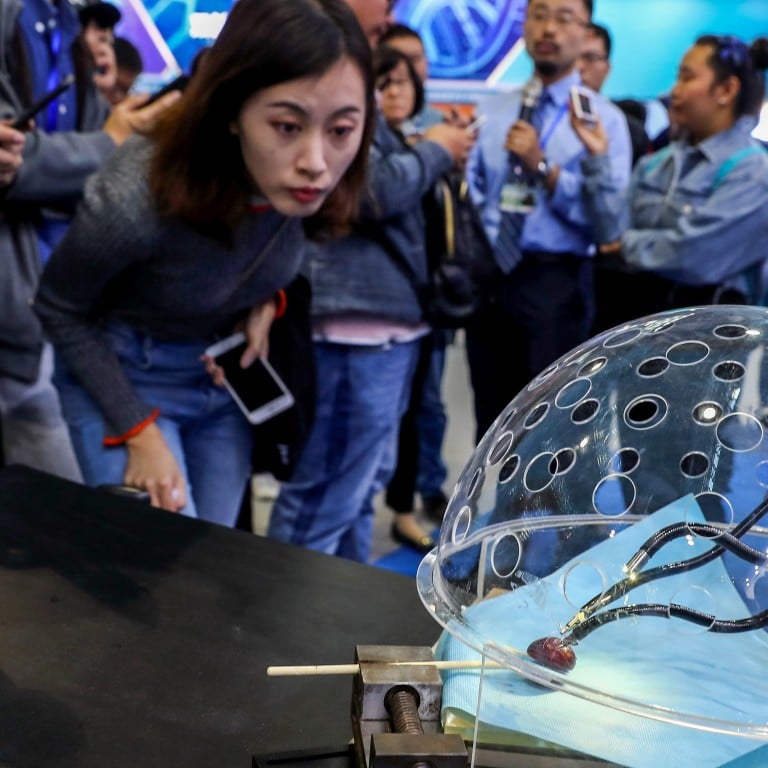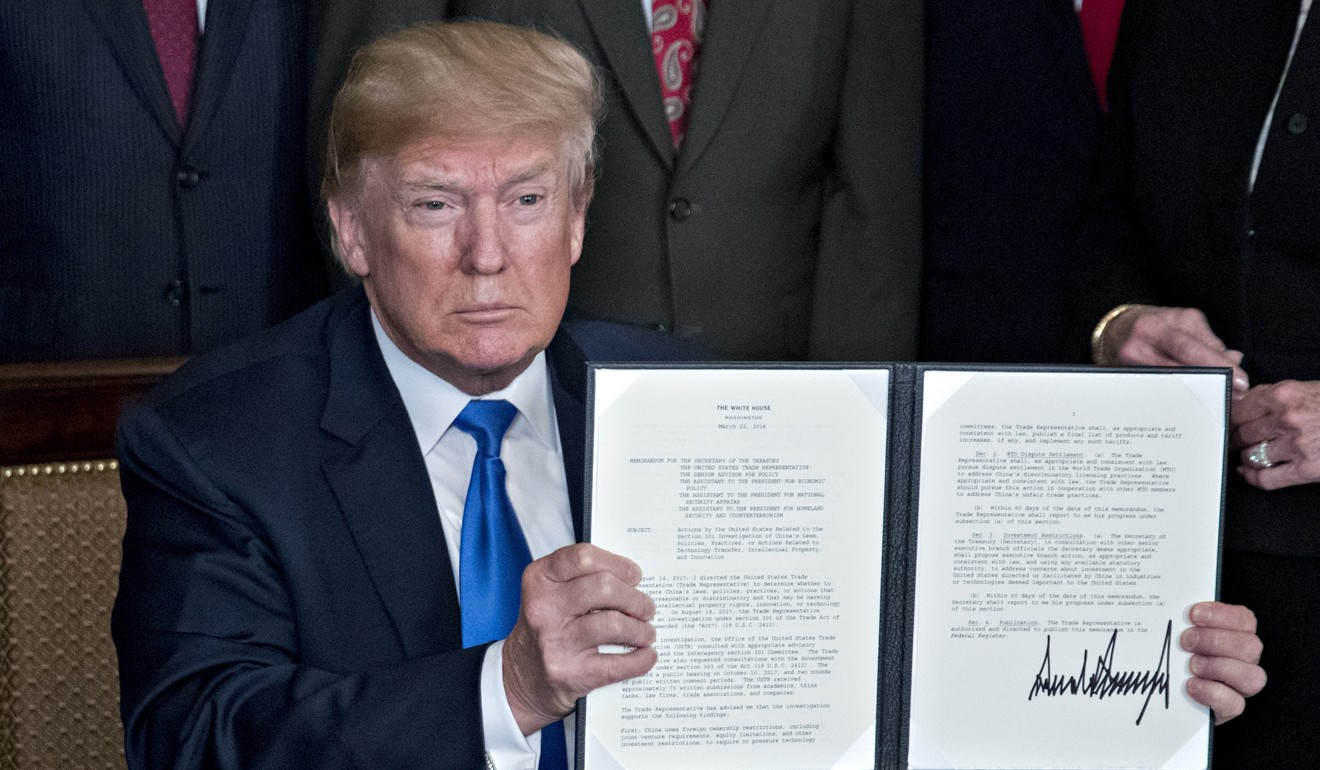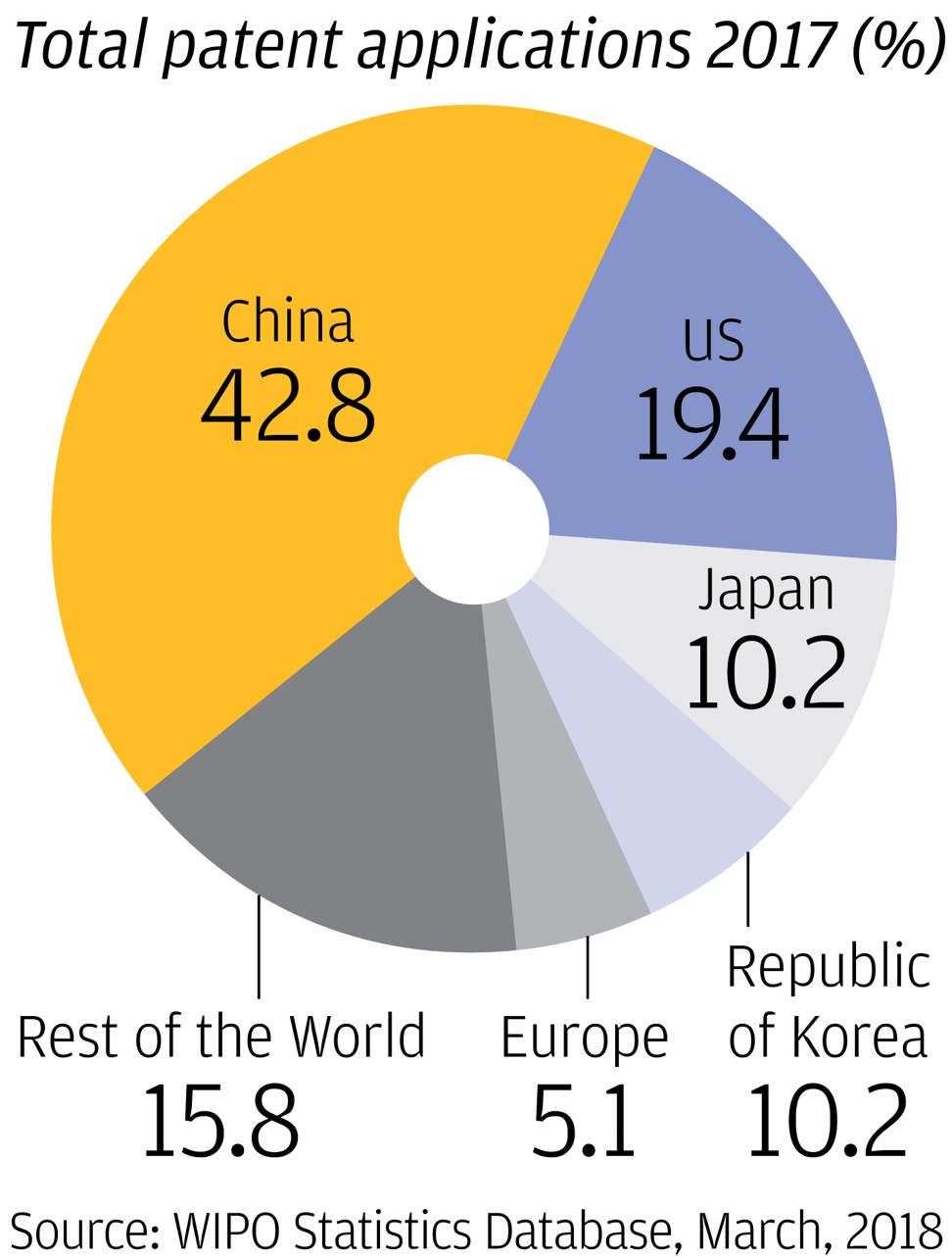
The US is targeting China for intellectual property theft, but is the fight really worth it?
- While intellectual property protection initially spurs innovation, it can end up hampering it in the long run
- From an ethical point of view, penalising the theft of ideas wrongly presumes that ideas are in short supply and that we can properly define their value
Has China been stealing intellectual property from the US? A column in The Washington Times discussed “taking on China’s intellectual property theft”. Bloomberg asked, “What’s intellectual property and does China steal it?” Its answer? Yes. Market Watch inquired, “Why is the US accusing China of stealing intellectual property?” The conclusion? Because China is guilty. CNBC reports that “1 in 5 corporations say China has stolen their IP within the last year.”
While much legal and political capital is spent on intellectual property theft, we should be asking a more basic question: should intellectual property rights exist in the first place? If the answer is no, China should not be punished for its “theft” even if it has acted as charged.
There are two reasons to oppose the protection of intellectual property rights: utilitarian and ethical.

If we consider patents from the former pragmatic point of view, there is little doubt that, initially, this form of property rights will call forth more inventions, more software, more music, plays and pharmaceuticals, and will unleash creativity in all sorts of other endeavours. Offer people additional compensation for something and more of it tends to be forthcoming.
A patent gives you a monopoly over your innovation. This will not last forever, but while it lasts, you can make hay.
However, after a few years, this changes. Formerly, all you had to do to get a patent was come up with something new. But after the system becomes established, you can no longer just create something. Now, you have to avoid all sorts of other patents.
Some people file for patents not to bring a new product to the market but to be able to sue others for infringement. Many scientists and engineers, instead of generating new merchandise, spend time in court where much judicial time and effort is wasted on such controversies. People have to wait years, instead of months, to have their lawsuits settled.
What about copyright? Smith writes a book, for example. He sells it to Jones on the condition that the latter doesn’t copy it. But the buyer leaves it on the proverbial park bench and Green picks it up.
The latter signed no contract with Smith. Green is not contractually obligated not to copy Smith’s book. Nor could Smith sue Jones for losing the book in the first place. Who would ever purchase anything along with liability for misplacement?
But wouldn’t we have fewer books, pharmaceuticals or musical scores if Jones is allowed to copy Smith’s book and sell it? Yes and no. On the one hand, Jones, the buyer, would garner the royalties that would otherwise go to Smith.
On the other hand, many more books written by Smith would be sold, assuming Jones is a better marketer. As demand for the book rises, Smith, now a more famous author, will be able to ask for bigger book advances while demand for his public lectures will increase.
Most beautiful library closed over ‘pirated and obscene’ books
Everyone sees that it works. When Bob finally comes along with his product, few people trust it. Alice cashes in for a few more months, until people slowly start to rely on Bob’s copy.
Will we have more innovation with or without intellectual property protection? My assessment is that early on, when these systems are first introduced, society benefits from intellectual property protection. Later on, less so. Finally, we clearly lose out in this system.
Ethically speaking, shouldn’t it be illegal to steal ideas? Isn’t it just as criminal to rob someone of all the hard work that went into an invention as to take the owner’s coat? No.
When you steal someone’s coat, he no longer has it. When he invents the bicycle, and you see it and “steal” his idea, he still has it. It is a strange kind of theft when the owner’s property is still in his possession.
Technology will remain a thorn in the side of US-China relations
But didn’t you steal the value of this invention by copying it, depriving the owner of the monopoly profits that would accrue to him under an intellectual property system? Yes. However, while we may own goods and services, we may not, properly, own their value.
That is determined by both supply and demand. Right after the bicycle invention, someone comes up with skates, or a car, or other means of transport. This, also, reduces the value of the bicycle innovation. But not even the strongest supporter of intellectual property would maintain that these other inventors stole anything from the first one.

The basic defence of private property rights from a utilitarian point of view is to separate mine from thine. We need a system whereby we can all easily determine who may wear the shoes now on your feet or be located on the chair I am now sitting on. These things are scarce. We can’t all have any specific shoes or chairs.
But ideas are not scarce. One person knowing that E=MC² or that 2+2=4 does not detract from the originator of this information also retaining this knowledge.
Walter E. Block, Ph.D, is Harold E. Wirth Eminent Scholar Endowed Chair and Professor of Economics at Loyola University New Orleans


